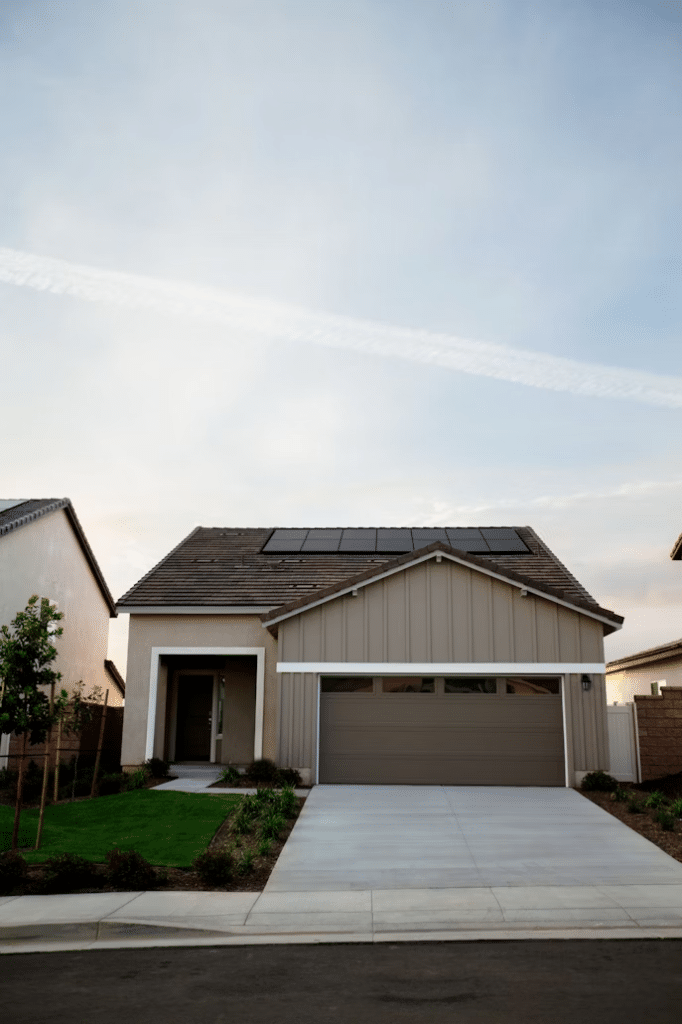How to keep concrete clean after pressure washing is something many homeowners want to know once they see how fresh their driveway, patio, or walkway looks after a service. The challenge is that dirt, leaves, oil stains, and everyday wear can return quickly, dulling the surface sooner than expected.
With a few simple habits like regular sweeping, rinsing, and protective treatments, you can extend the results of a wash and keep concrete looking sharp for much longer. Professional services also provide deeper, longer-lasting results when routine upkeep isn’t enough.
Your Roadmap to Lasting Results
- Why freshly cleaned concrete needs ongoing care
- Routine sweeping and rinsing practices
- Protective sealants and how they help
- Everyday habits that make a difference
- The advantages of professional cleaning services
- How often to schedule professional care
- Key takeaways for homeowners

Why Freshly Cleaned Concrete Still Needs Attention
Many homeowners are surprised that concrete, even after being pressure washed, can quickly return to its dull or stained state. This happens because concrete is porous. Microscopic holes in the surface trap water, dirt, and organic particles, creating the perfect environment for discoloration. Without additional maintenance steps, the results of pressure washing may not last as long as expected.
Understanding this helps homeowners realize that cleaning isn’t a one-time solution but the beginning of a care routine.
How to Keep Concrete Clean After Pressure Washing Over Time
The simplest way to extend the life of your cleaning is through consistent upkeep. Leaves, dust, and everyday debris can create stains if they sit for too long. A quick sweep every few days removes loose material before it breaks down and settles into the concrete’s pores.
Occasionally rinsing the surface with a garden hose also helps, especially after heavy rainstorms or periods of wind. These small actions may feel basic, but they delay the need for another deep cleaning.
Protective Sealants: Adding a Shield Against Stains
One of the most effective ways to keep concrete clean after pressure washing is by applying a protective sealant. Sealants create a thin barrier over the surface, reducing how much liquid or dirt can penetrate the concrete. This makes it easier to rinse away everyday grime and helps prevent deep stains from oil, rust, or lawn care products.
There are different types of sealants, from penetrating formulas to topical coatings. The right choice depends on the look you want and how much protection you need. While this can be a DIY project, many homeowners prefer to have a professional handle it, ensuring an even application and proper curing.

Eco-Friendly Practices for Long-Lasting Results
When exploring how to keep concrete clean after pressure washing, it’s worth considering eco-friendly methods that protect both your surfaces and the environment. Small adjustments to your routine can make a big difference:
- Use biodegradable cleaners: Gentle, plant-based solutions are effective for quick spot cleaning without harming soil or nearby plants.
- Capture runoff water: When rinsing large areas, try to direct or contain excess water to avoid carrying detergents or debris into storm drains.
- Limit harsh chemicals: Strong solvents can strip away protective sealants faster, leaving concrete vulnerable to staining.
- Protect landscaping: When applying cleaners or rinsing surfaces, be mindful of flowerbeds and lawns to prevent unintended damage.
- Choose sustainable sealants: Some modern sealants are designed with eco-friendly formulas that still provide strong, lasting protection.
By combining these approaches, you maintain a clean surface while also supporting long-term durability and reducing environmental impact.
Seasonal Maintenance to Protect Your Surfaces
Understanding how to keep concrete clean after pressure washing also means knowing how the seasons affect your outdoor spaces. In spring and summer, pollen, lawn clippings, and heavy rains often leave residue that can stain or dull the surface. A quick rinse with a garden hose every few weeks can reduce buildup.
Fall brings leaves, acorns, and other organic debris that should be swept promptly to prevent discoloration. During winter, avoid using harsh de-icing salts, as these can wear down protective sealants and leave the surface vulnerable. Instead, opt for sand or gentler alternatives to maintain traction without damaging the concrete.
By adjusting your care routine to the time of year, you not only extend the results of pressure washing but also protect the durability of your driveway, patio, or sidewalks.

Everyday Habits That Make a Difference
Aside from cleaning and sealing, a few everyday practices can greatly reduce how often you need heavy-duty services:
- Manage vehicle leaks: If your car drips oil or coolant, placing a tray or mat under the vehicle can prevent permanent staining.
- Clean spills quickly: Food, drink, and fertilizer stains are much easier to manage if rinsed right away.
- Redirect water runoff: Make sure gutters and down spouts aren’t pushing dirty water across your driveway or patio. This not only keeps the surface clean but also protects your foundation.
- Limit abrasive materials: Salt and de-ices can break down concrete over time. When possible, opt for gentler alternatives during winter months.
Common Mistakes That Shorten the Life of a Clean Surface
Understanding how to keep concrete clean after pressure washing also involves knowing what not to do. One of the biggest mistakes is letting debris like leaves, grass clippings, or soil sit too long on the surface, since these can leave behind stains that are harder to remove later.
Another issue is neglecting to reapply sealant over time. Sealants wear down and, without renewal, the concrete becomes more vulnerable to oil, water, and dirt absorption. Some homeowners also turn to the wrong cleaning products, often harsh or acidic formulas that can damage the surface and shorten its lifespan.
Others rely too heavily on repeated pressure washing instead of balancing it with lighter upkeep, which can slowly wear down the finish. Finally, ignoring drainage issues around the property allows dirty water to pool on concrete surfaces, leading to faster staining and discoloration.
Avoiding these common mistakes ensures the results of a wash last much longer and reduces the need for constant deep cleaning.
Why Professional Services Provide Lasting Results
While home maintenance is effective, there’s no substitute for professional care. Technicians who specialize in concrete cleaning use commercial-grade equipment and safe, tested solutions that go beyond what consumer tools can offer. This ensures that buildup is removed fully without damaging the surface.
Professionals also know how to treat problem areas differently, such as oil spots versus organic stains. Their knowledge helps the clean last longer, making it a cost-effective solution over time. With their expertise, homeowners not only achieve a deeper clean but also gain a better understanding of how to keep concrete clean after pressure washing for long-lasting results.

Recommended Frequency for Professional Power Washing
Homeowners often wonder how often they should schedule professional care. The answer depends on several factors:
- Weather conditions: Areas with heavy rainfall or frequent freeze-thaw cycles may need more frequent cleaning.
- Level of use: Driveways with constant vehicle traffic will stain faster than a low-use walkway.
- Surroundings: Properties with lots of trees often see more staining from leaves, pollen, and sap.
As a general rule, scheduling professional power washing every 12 to 24 months keeps concrete surfaces looking fresh and prevents long-term damage. Between visits, sweeping and sealing provide the extra protection needed to extend results.
Additional Benefits of a Clean Exterior
While this guide focuses on driveways and patios, many homeowners also notice that once concrete is clean, other surfaces begin to stand out. Regular care often expands into siding, roofs, and windows.
For instance, scheduling house washing in Zionsville alongside concrete cleaning can transform the look of an entire property. This type of coordinated maintenance creates a consistent, well-kept appearance that improves curb appeal and makes outdoor spaces more enjoyable.
Lasting Impressions Through Smart Care
Learning how to keep concrete clean after pressure washing comes down to combining small everyday habits with periodic professional care. From sweeping and sealing to knowing when to call in experts, each step helps extend the life of your cleaning and keeps your property looking sharp.
Concrete may be durable, but it rewards consistent upkeep. By applying these strategies, you’ll ensure that your surfaces stay bright and welcoming for family, friends, and guests year-round.

